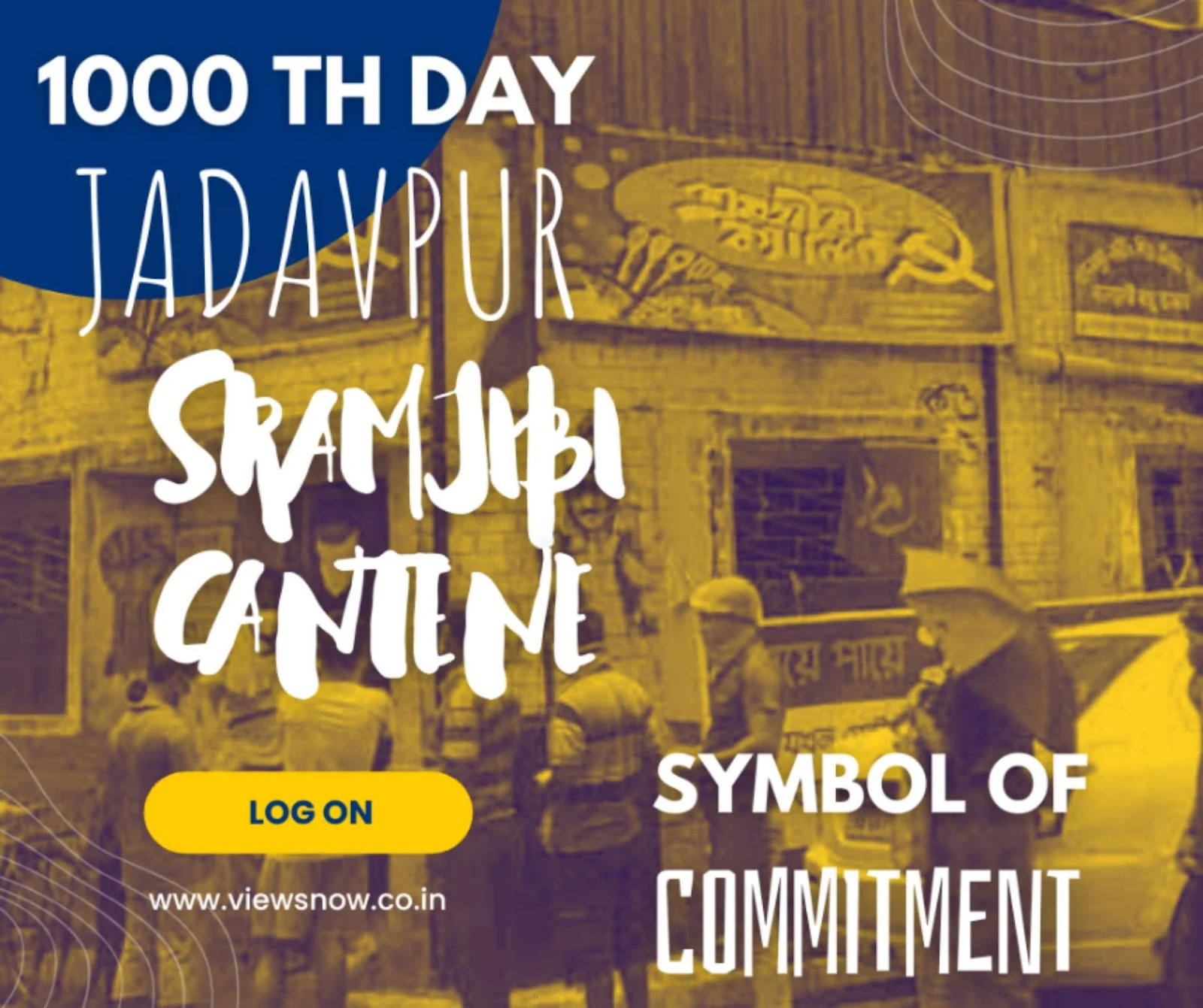At 12 Nabanagar in Jadavpur, a large number of rickshaw-pullers, autorickshaw drivers, vegetable merchants, students, and others congregated. Kolkata, on December 29 to show appreciation for their support during the curfew.
A thousand days ago, the Jadavpur Sramajibi Canteen opened its doors as a community kitchen. A small group of young people's generosity, hard work, and initiative saved the lives of thousands of ordinary people during the pandemic.
Everything from budgeting to grocery shopping to meal preparation to distribution has been a challenge. To paraphrase, "We didn't intend to distribute food during the initial outbreak of COVID. As a matter of fact, we planned to distribute sanitizers to the residents of Jadavpur (Sections 96 and 99). Sanjay Bhattacharya, a businessman and longtime canteen participant, said, "We had even bought the chemicals and begun distributing them in bottles."
The true nature of the lockdown-induced situation became immediately apparent to the members. Both businesses and marketplaces ceased operations. Migrant workers, many of whom were poor, made up the majority of the population of Ward 99. The demand for food was seen as a higher priority than the requirement for hygiene products, Bhattacharya explained.
Following a brief consultation, it was decided to deploy a food truck in strategic areas across the Jadavpur neighbourhood, dispensing staples like rice, dal, and vegetable curry. The plan was to provide daily fresh meals of essentials to as many people as possible. The Sramajibi Canteen had its humble beginnings there.
The members were quickly confronted with the true nature of the lockdown-induced catastrophe. Work ceased, and all marketplaces were shut. Poor migrant workers with few resources lived in Ward 99. After assessing the situation, we concluded that providing these folks with food was more important than providing them with hand sanitizers," Bhattacharya added.
After a brief discussion, it was decided to deploy a food truck in strategic areas across the Jadavpur neighbourhood, dispensing staples like rice, dal, and vegetable curry. The plan was to provide daily fresh meals of essentials to as many people as possible. So began operations at the Sramajibi Canteen.
At first, coworkers' friends and relatives came forward to help raise money, but that quickly proved insufficient. The initiative required additional funding as the number of people in need expanded daily. More and more people offered assistance as word of the need spread. In this context, a social media page was launched, and it would go on to become quite important. Anjan Chakraborty, a college worker and active member of CPI(M), has been involved in the initiative. "Within minutes, our phones and email accounts were flooded with messages from people all over the world eager to help," he said.
People from all over the city, including the student body at Jadavpur University, chipped in to help, and young activists from the Students' Federation of India (SFI) and the Democratic Youth Federation of India (DYFI) also pitched in. Multiple locations in Howrah also boasted their own canteens.
At the end of the first lockdown, regular employees had already offered to chip in some money to help out the cafeteria. To feed the people of Nabanagar, "we decided to take a basic price of Rs 20 per head for the food," Bhattacharya explained.
The staff's unrelenting efforts kept the cafeteria running smoothly up until the second wave of COVID.
"At initially, all we had to do was organise, collect the information of oxygen cylinder suppliers and ambulance services, and distribute it to individuals in need. However, while Sengupta and others toiled tirelessly day and night, "we had to come to the frontline and do nearly everything" as the situation deteriorated.
Students and young adults from SFI and DYFI have begun delivering oxygen tanks, food, and medicine to COVID victims' homes. Red volunteers did everything they could, from bringing food to families affected by COVID to organising for ambulances and hospital beds.
Everyone in our group is an established professional with a full-time job and a family of their own. They continued working for the cause even after attending to official and personal responsibilities. During those three months, Sengupta says, "we took turns receiving calls 24 hours a day, seven days a week, since our phones were being overwhelmed with calls and requests for help."
Despite their efforts, a few of Red Volunteers still experienced harassment, but the Kolkata Police were there to protect them.
Five to six full-time workers and a few volunteers run the canteen at the moment. The community kitchen has a fund where regular staff get paid a salary every month.
Our goal was to keep a professional tone throughout to ensure consistent high quality. Chakraborty explained the need for seasoned professionals by saying this.The price of food has lately jumped from Rs 20 to Rs 25 per person, despite maintaining the same level of quality.
On their 1000th day in operation, the canteen promised to feed 1,000 individuals. Moreover, that's precisely what happened.










